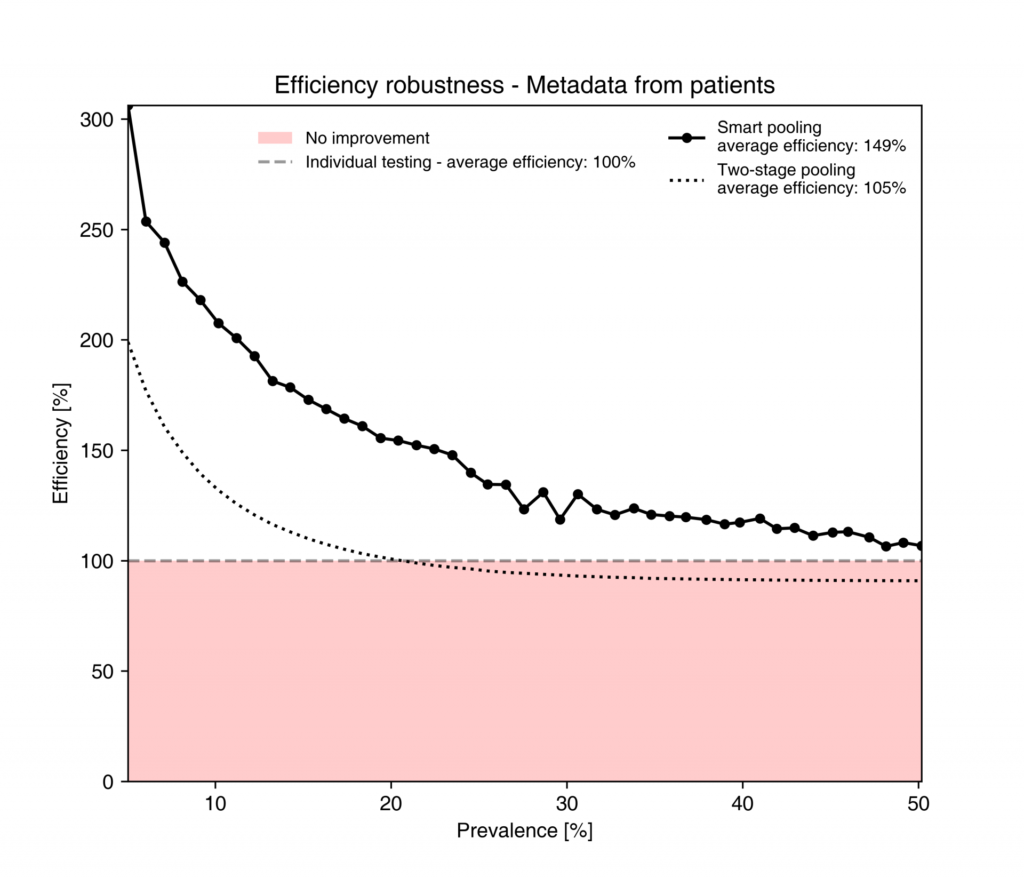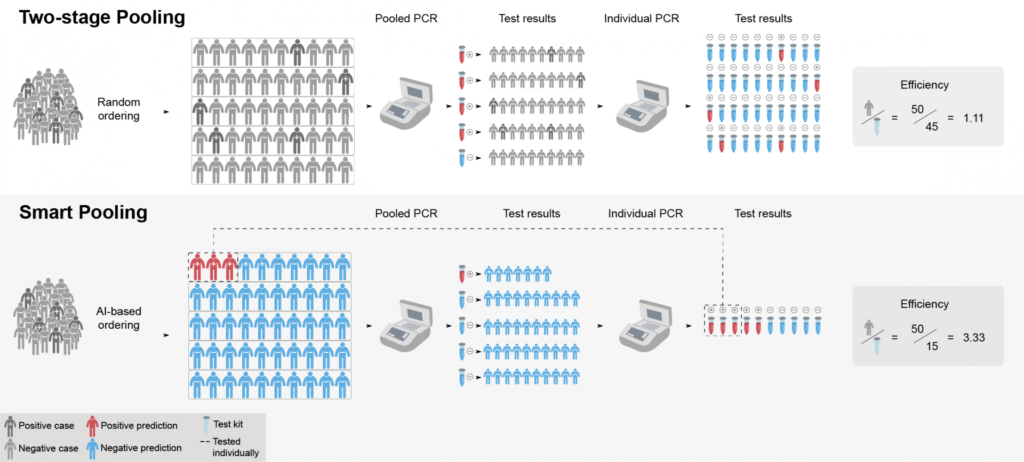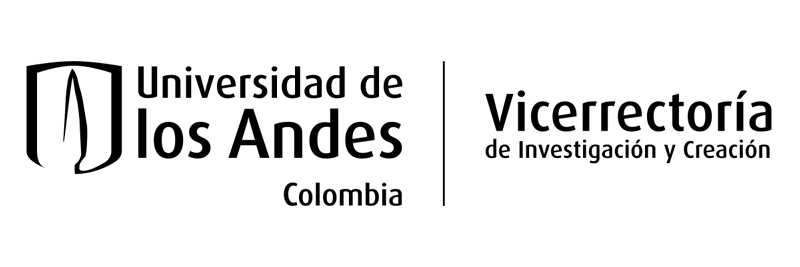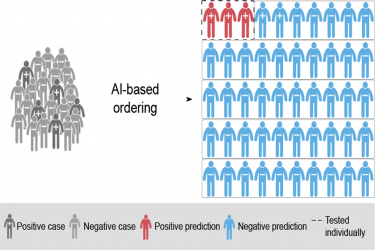
Catalina Gómez

Diego Valderrama

Julián Martínez
Collaboration with Silvia Restrepo, Juan Manuel Pedraza-Leal, Mauricio Velasco, Manu Forero-Shelton, Olga L. Sarmiento, Marcela Guevara-Suarez, Martha Cepeda and Jorge Madrid-Wolff
Smart Pooling is an Artificial Intelligence (AI) system that increases the number of COVID-19 samples that can be tested with the same amount of resources.
Massive molecular testing for COVID-19 has become fundamental to moderate the spread of the disease. While pooling samples can enhance the efficiency of testing, current pooling strategies are only useful at very early stages of the epidemic.
We proposed the use of clinical and sociodemographic information of patients, to train an AI model to predict the probability of a sample being positive for COVID-19. With this information, we proposed a novel pooled testing protocol that triples the efficiency in COVID-19 testing when 6% of the population is infected and could also improve efficiency for prevalences up to 50%. Smart Pooling is an innovative application of Machine Learning that augments the efficiency of testing regardless of the prevalence of COVID-19 or the selected pooling strategy.
In November 2020, with the generous support of The Rockefeller Foundation, Universidad de Los Andes conducted a research study to assess the possible use of Smart Pooling to increase COVID-19 testing capacities in Bogotá, Colombia. Study results revealed that the adoption of Smart Pooling had the potential to increase testing efficiency by 27% over a four-month period in Bogotá. Through this study, the research team was able to identify bottlenecks in COVID-19 testing processes, which were then shared with key stakeholders along with recommendations to improve testing efficiency. Discussions have also begun with the Instituto Nacional de Salud and the Pan American Health Organization to demonstrate Smart Pooling’s potential use for the current COVID-19 pandemic and future pandemic response initiatives.













